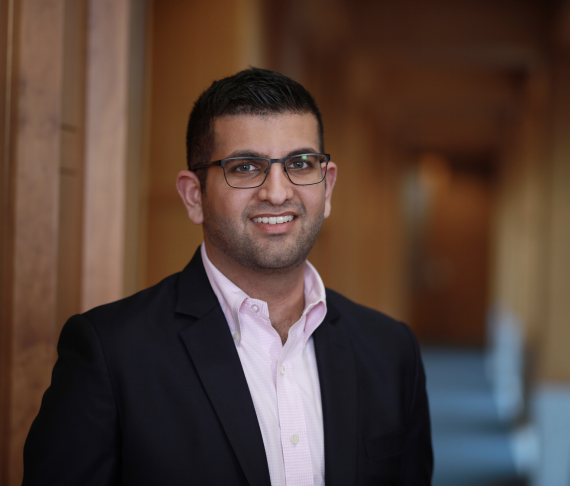Name: Mihir Khetarpal '18
Current Graduate Program: Juris Doctor (JD)
Current University: University of Virginia
Majors: Economics and Government & Politics

Why did you decide to go to graduate school (i.e. career advancement, encouraged/sponsored by a current or former employer, personal interest)?
I decided to go to graduate school primarily because my undergraduate coursework developed in me an interest in law. In the Economics realm, I would take and enjoy classes that were more policy focused or macro rather than micro heavy, which fit naturally with law and policy. Further, through my internships, I discovered that I enjoyed analytical work, and law fits in very well with that.
How did you narrow down your graduate school selection?
With law school, for better or worse, a large portion of the admissions process depends on your LSAT and your GPA, so I could not begin to think of where I would want to go until I had my LSAT. After that, I met with Greg Shaffer (Pre-Law Advising Office) to come up with a list of where to apply. I had no concerns about geography, so I applied to the "t14" schools as that included some reaches for me as well as some that I was confident about getting in to. In terms of deciding where to go, finances were very important to me, and UVA gave me a full scholarship. Beyond that, however, visiting the law schools was extremely informative, and I liked the culture of UVA a lot.
How has your undergraduate coursework helped you in your current graduate program (i.e. quantitative skills, research techniques, communication skills)?
Economics is important in many graduate programs, and law is no exception. Certainly, the quantitative skills from econometrics and statistics helped, but also as important is understanding the basic theories ECON Blog | The University Career Center @ BSOS | www.careers.umd.edu "Economics is important in many graduate programs, and law is no exception." LAW SCHOOL of microeconomics and macroeconomics. Courts will often rationalize decisions on economics, and it is important to look at those rationalizations with a critical eye and see if the Court got it right.
What do you enjoy most about graduate school?
I really enjoy the coursework itself and the way in which it is taught. The courses are very discussion heavy, and the Socratic method is very much alive. It requires participation in class, and sharpens the mind when thinking about cases or rationales for a particular holding. It's the type of school where your brain feels tired at the end of the day, and that is a good thing.
What do you hope to do after graduate school?
I hope to clerk for a couple of years for two federal judges, and after that, I would like to go to a law firm for at least the near future (I will be spending next summer at Williams & Connolly, and hope to be able to return after the summer). For the long future, I just want to find work that is interesting, exciting, and that allows me to make a difference.
Any graduate school advice for students interested in your field?
I would reach out to Mr. Shaffer at the pre-law advising office if you are at all interested in law school. Further, taking a course in the GVPT or MLaw departments with Professor Spivey really helped me to see what law school courses are like, and he was extremely happy to talk through the law school decision making process.
Anything else you want to share with undergraduates?
Enjoy your time at UMD! Go to basketball games, get in to D.C., have fun.

